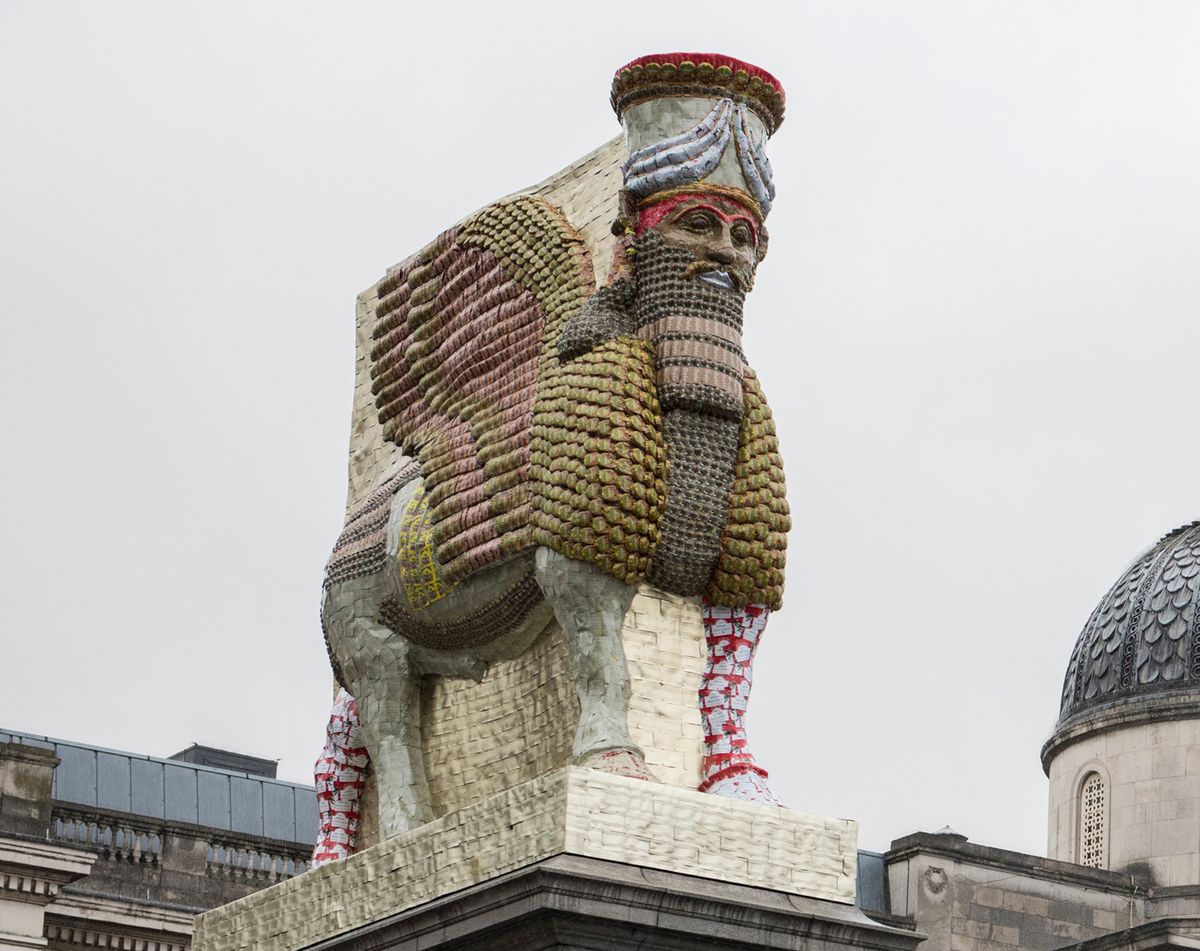Michael Rakowitz’s sculpture, The Invisible Enemy Should Not Exist, was unveiled in Trafalgar Square this week as the latest Fourth Plinth commission (until March 2020). The work recreates an Assyrian winged bull with a human head, known as a lamassu, created in the ancient Mesopotamian city of Nineveh in 700 BCE but destroyed by Islamic State in 2015. It wears what the artist has called an “armour” of colourful date syrup cans, which Rakowitz has worked with for many years and identified as a symbol of the Iraqi people and the refugees that have fled the country in recent years—dates are to Iraq what cigars are to Cuba, he has said. “The salvage of date syrup cans in this work makes present the human, economic and ecological disasters caused by the Iraq wars and their aftermath,” he said in a speech just before the sculpture was unveiled. “The reconstruction of the lamassu set on the Fourth Plinth allows an apparition to haunt Trafalgar Square at a time when we are witnessing a massive migration of people fleeing Iraq and Syria.”
Modigliani, which closes this weekend (until 2 April) at Tate Modern, includes the largest group of nudes by the artist ever seen in the UK. Among the 12 works are Seated Nude (1917), on loan from the Royal Museum of Fine Arts in Antwerp, and Female Nude (around 1916) from the Courtauld Gallery. The latter work was included in a 1917 exhibition of the Italian artist’s works at Berthe Weill gallery in Paris, which was shut down by the police on the grounds of indecency. Another significant aspect of the exhibition is the new emphasis on the artist’s sculptural practice. “Early in his career Modigliani would introduce himself as a sculptor rather than a painter,” says the co-curator Nancy Ireson. “Bringing together nine of his stone Heads reveals the great ambitions Modigliani held for his work in three dimensions.” Carving techniques reflect the influence of his friend, the Romanian sculptor Constantin Brancusi, and of the Egyptian, Angkorian, and African artefacts that he encountered in museums, she adds.
Also coming to a close this weekend at Tate Modern is Superflex’s Hyundai Commission: One Two Three Swing! For the past six months visitors have been invited to play on swings and lie down on a giant carpet all in the name of art. The installation includes a giant moving pendulum that hangs above the west entrance ramp and three-person swings connected by a line of orange-coloured beams that snake around the space before reappearing outside—it is the first time a Turbine Hall commission has gone beyond the museum’s walls. It may take the form of a children’s playground but darker themes of apathy at the current state of society, financial crashes and populism lurk beneath the fun façade. “We’re looking at the current state of mind, globally,” says Bjørnstjerne Christiansen, one third of the Superflex collective.


